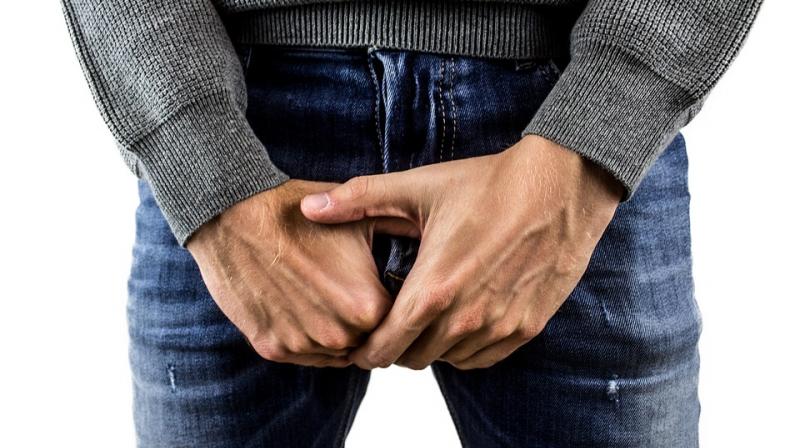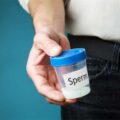Why Is My Sack Always Tight?
The scrotum is a sac of skin that hangs from the body at the front of the pelvis, between the legs. It sits next to the upper thighs, just below the penis. The scrotum contains the testicles. These are two oval-shaped glands responsible for producing and storing sperm. They also produce several hormones, the main one being testosterone. The scrotum contains three major (paired) structures:
Testis – the site of sperm production.
Epididymis – situated at the head of each testicle. It functions as a storage reservoir for sperm.
Spermatic cord – a collection of muscle fibers, vessels, nerves and ducts that run to and from the testes.
There are also muscle fibers located within the scrotum. The dartos muscle is a sheet of smooth muscle, situated immediately underneath the skin. It acts to help regulate the temperature of the scrotum, by wrinkling the skin – this decreases surface area, reducing heat loss.
The scrotum hangs outside the body because it needs to maintain a slightly lower temperature than the rest of the body. This also lower temperature and helps to maintain sperm production. Scrotal tissues help protect the structures inside the testicles, where sperm and important hormones are produced.
In addition, the scrotum protects the testicles and major blood vessels, as well as tubes that release sperm from the testicles into the penis during intercourse.
Why is my scrotum sack always tight?
Scrotal masses are abnormalities in the bag of skin hanging behind the penis (scrotum). Scrotal masses might be an accumulation of fluids, the growth of abnormal tissue, or normal contents of the scrotum that have become swollen, inflamed, hardened and always feel tight.
A tight sac can be a symptom of several disorders. Most of these conditions are harmless.
In rare cases, a scrotal mass can be a sign of a more serious condition such as testicular cancer. Other causes of scrotal masses include:
- Cyst: Fluid-filled sacs in the testicle.
- Epididymitis: Infection or inflammation (swelling) of the tube that stores sperm.
- Hernia: Tissue pushes into the scrotum through a weak spot in the abdominal wall.
- Varicocele: Swollen veins inside the testicle.
Scrotal masses need to be examined by a doctor, even if you’re not in pain or having other symptoms. Scrotal masses could be cancerous or caused by another condition that affects testicular function and health. Self-examination and regular doctor exams of the scrotum are important for prompt recognition, diagnosis and treatment of scrotal masses.
When to see a doctor
Beyond sac tightness, sudden, severe testicle pain can be a sign of testicular torsion — a twisted testicle that can quickly lose its blood supply. This condition requires immediate medical treatment to prevent loss of the testicle. Testicular torsion can occur in males of any age, although it is more common in adolescents.
Seek immediate medical attention if you have:
- Sudden, severe testicle pain
- Testicle pain accompanied by nausea, fever, chills or blood in your urine
Schedule a visit with your health care provider if you have:
- Mild testicle pain lasting longer than a few days
- A lump or swelling in or around a testicle
Self-care
These measures might help relieve mild testicle pain:
- Take an over-the-counter pain reliever such as aspirin, ibuprofen (Advil, Motrin IB, others) or acetaminophen (Tylenol, others), unless your doctor has given you other instructions. Use caution when giving aspirin to children or teenagers. Though aspirin is approved for use in children older than age 3, children and teenagers recovering from chickenpox or flu-like symptoms should never take aspirin. This is because aspirin has been linked to Reye’s syndrome, a rare but potentially life-threatening condition, in such children.
- Support the scrotum with an athletic supporter. Use a folded towel for support and elevation when you’re lying down.






